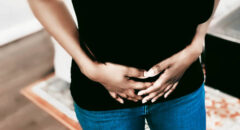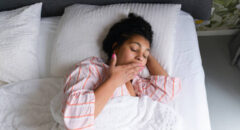
When it comes to urinary or bladder incontinence, the underlying causes are many. However, one thing is for sure: a leaky bladder can strike anyone at any time, and makes you feel like a prisoner to the bathroom. In fact, nearly 25 million Americans struggle with bladder control. Of those, 75 to 80 percent are women, the National Association for Continence says.
The condition presents itself typically due to a larger health issue such as:
- UTI
- Diabetes
- Kidney problems
- Constipation
- Nerve problems
- Obstructive Sleep Apnea
Thankfully for sufferers, there are several products, surgeries, and remedies to avoid undesirable accidents and break free from a leaky bladder. Here are five to consider:
Kegel Exercises
Flex the same muscles used to stop urinary flow. According to experts, this treatment should be at the top of your list.
Not sure where to begin? A physical therapist can point you in the right direction. The best part? Most see improvement after six to 12 weeks of continued practice. Of course, you’ll have to keep doing the exercises to maintain the results.
Magnesium
Essential for proper muscle and nerve function, this nutrient may also ease incontinence woes. Per a small study at Tel Aviv University in Israel, more than half of the 40 women who took magnesium hydroxide pills twice daily saw improvements in their leaky bladder.
Some experts believe that magnesium can also relieve urinary incontinence as it reduces bladder muscle spasms as well as allows it to empty completely.
Try foods like corn, potatoes and bananas to boost your magnesium intake.
Vitamin D
Because this vitamin promotes calcium intake and good bone health, it makes sense that it would reduce the risk of pelvic floor disorder – as it also works as a support structure.
According to a 2010 study, women who had vitamin D levels that were in a normal range (aged 20-years and older) were less likely to have any type of incontinence. In other words, be sure to meet your daily requirement (600 IU of vitamin D a day for women) with fortified milk, eggs, fish and good old fashion sunshine.
Avoid Smoking
In case you need another reason to avoid smoking, this dirty little habit has been dubbed the “antidote to incontinence.” Researchers at the Aristotelian University of Thessaloniki in Greece suggest that nicotine lovers are far more likely to be incontinent than nonsmokers.
Hypnotherapy
This treatment requires a hypnotherapist who places a patient in a state of deep relaxation and heightened concentration. Experts say hypnotherapy helps patients feel more in control of the body—especially when it comes to bladder and muscle contractions.
In a study published in the British Medical Journal, 50 women who underwent the procedure – consisting of 12 hypnotherapy sessions in a month – a majority experienced improvement. However, it’s important to note that not all research has been positive. Do your research and discuss with your primary doctor first.









